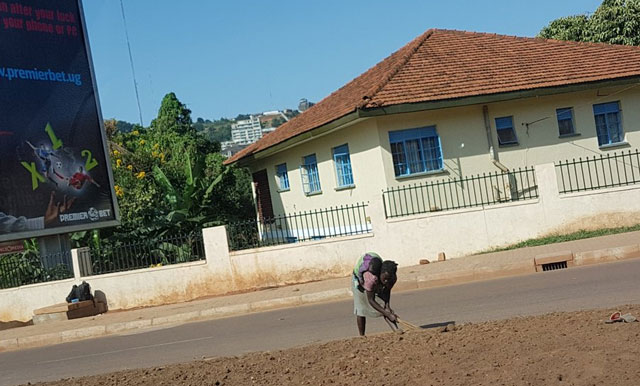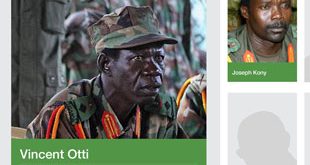
Kampala, Uganda | THE INDEPENDENT | Kampala Capital City Authority-KCCA has disbursed close to sh100 million for the payment of volunteers under the Seven Hills Group for the month of August.
Seven Hills surfaced in March 2021 at a time KCCA launched the smart city campaign, an initiative intended to drive community engagement in cleaning the city. They de-silted drainages in Kampala before expanding to sweeping the streets.
It was marketed as a volunteer youth group uniting former criminal gang members who decided to engage in activities beneficial to their communities. They soon started recruiting other members from the community who are not former criminals. Its membership is currently over 500 per division.
Since their arrival, there have been reports of clashes between the Seven Hills Group and SACCO members on the streets. The SACCOS (who had a running contract) accuse Seven Hills of deploying in areas where they also have people to work to force them off the streets and insulting them while boosting their powers.
The funds have been sent to accounts of division community groups, which provide cleaning, landscaping and engineering services in Kampala.
In correspondences seen by our reporter, Ivan Kiirya, the supervisor Treasury at KCCA notifies the town clerks in divisions and other KCCA officials informing about the transfer of funds to Seven Hills Initiative. “Below are funds sent to the Sacco division accounts to take care of the casuals for seven hills for further management,” the email sent on Sept 28th, 2021 reads in part.
According to the disbursement list, over Shillings 23.6 million has been sent to Makindye Division Community Cooperative Savings and Credit Society Limited, Shillings 11.56 million to Rubaga, Shillings 25.6 million to Kawempe, Shillings 14.69 million to Nakawa and Shillings 23.7 million to the Central Division Community Cooperative Savings and Credit Society Limited.
There is no government policy on volunteering with government agencies and KCCA has not communicated any contractual agreement it has with Seven Hills hence attracting questions among division leaders. The Lubaga Division Town Clerk, Thomas Ssentongo has since written back saying that “Contractual terms and obligations have to be discussed so that all of us are on the same page.”
In the same breath, the Nakawa division Town Clerk, Denis Omodi also wrote back to Kiirya on October 5th, 2021 asking for a copy of the contract agreement between KCCA and seven Hills that warrant the payment. “The 7 Hill group MUST be registered as members of the Nakawa Causal workers Sacco in order for us to pay them,” he said.
He also notes that for seven Hills to be paid through the SACCO account, they must present themselves for verification and come along with their bank account number, NSSF number, two passport photos and original National IDs.
“As Nakawa, I propose that as we await the agreement, a comprehensive list be shared showing the Seven Hills beneficiaries, their NIN and the amount due to each,” wrote Omodi. A source who preferred told URN that they are suspicious of the intention behind the disbursement of money to the SACCO accounts.
The source says some members of seven hills have been receiving daily allowances ranging between shillings 6000 to 10,000 given to them directly by their supervisors and now wonders why KCCA wants to pay them through SACCO accounts.
“It is as if they want to trap SACCOS that they hired seven Hills. These people are not members of SACCO and SACCOS can’t be responsible for them. KCCA just sent money to the accounts without talking to leaders in SACCOS, they have not told them how many people they are supposed to pay and how much. This is like a trap,” said the source
Asked to explain under what arrangement the volunteers were being paid, KCCA deputy spokesperson, Robert Kalumba said the group was helping with keeping the city clean and that’s why they decided to pay them.
“They have been working. Are you saying they should not be paid?” said Kalumba asked before adding that they were making arrangements to formalize their operations with the group. Kalumba couldn’t however explain why the money was paid through accounts of SACCOS, how many people were to be paid and how much.
Until September 15th, 2021, the division it is community SACCOs that have been providing cleaning, landscaping and engineering services in Kampala. The SACCOS in each of the five divisions of Kampala have a membership of over 3000 workers recruited under a reservation scheme targeting elderly people especially women, single mothers and people living with HIV.
When their contracts expired, KCCA embarked on an evaluation exercise to assess the performance of their casual workers. Earlier this week Daniel NuweAbine, who has been acting authority spokesperson, said findings of the evaluation process shall inform whether KCCA extends the contracts of division SACCOs and hence the reservation scheme.
Nevertheless SACCOS casual labourers have continued to work since this is not the first time there are lapses in their contracts. For instance, in 2018 and 2019, the SACCOS had no written contract with KCCA but they worked and were paid.
KCCA spends at least one billion Shillings in salaries on casual labourers and by the time funds were sent members of SACCOS had already received their August salary and are waiting for September. The salary usually comes mid of the next month.
****
URN
 The Independent Uganda: You get the Truth we Pay the Price
The Independent Uganda: You get the Truth we Pay the Price

